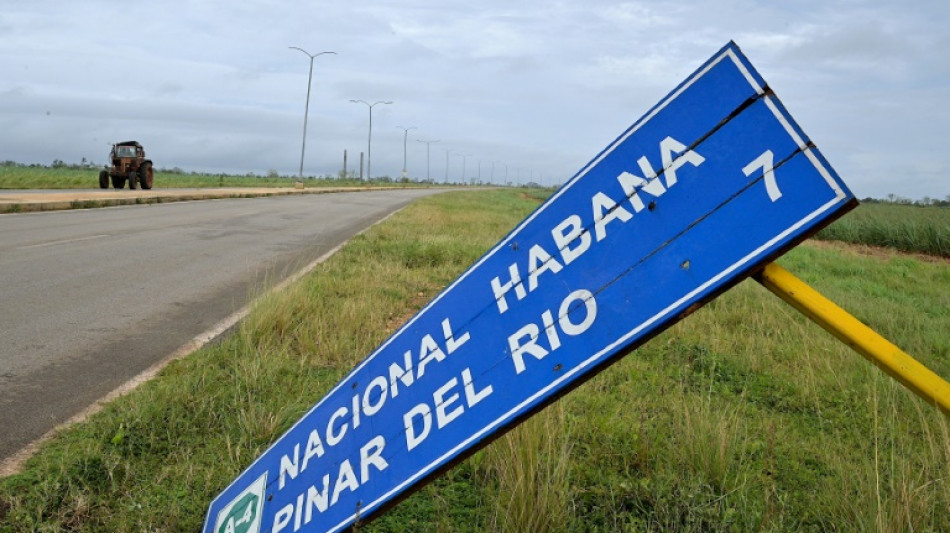
Cuba says it made arrests after protests over hurricane blackout

Cuba's government said Saturday it arrested an unspecified number of people who staged demonstrations when a hurricane left the island without power for the second time in weeks.
Street protests are very rare in communist-run Cuba.
The prosecutor's office said those arrested in Havana and the central provinces of Mayabeque and Ciego de Avila were being charged with assault, public disorder and property damage.
Hurricane Rafael knocked power out on Wednesday after hitting the west of the Caribbean island of 10 million people as a major Category 3 storm. The blackout lasted two days.
It came just two weeks after Hurricane Oscar, which left eight dead in the east of the island during a national electricity blackout caused by the failure of the island's biggest power plant and a shortage of fuel.
The government said that half of the people of Havana now have electricity again but much of the capital and the neighboring province of Artemisa do not.
According to the prosecutor's office, those detained after protesting were being held "for acts of aggression against authorities and territorial inspectors, causing injuries and public disturbances."
A human rights group called Justicia 11J said more than 10 people were arrested in Guanabacoa, a town on the outskirts of Havana.
"Persecution of people in the capital continues," it wrote on the social media platform X. It said those arrested had been acting peacefully in protests that the group itself documented.
The Miami-based NGO Cubalex said Friday that eight people were arrested in Encrucijada in central Cuba.
Cuba has been suffering hours-long power cuts for months and is in the throes of its worst economic crisis since the breakup of key ally the Soviet Union in the early 1990s -- marked by soaring inflation and shortages of basic goods.
The island's electricity is generated by eight aging coal-fired power plants, some of which have broken down or are under maintenance, as well as seven floating plants leased from Turkish companies and a raft of diesel-powered generators.
With concerns of instability on the rise, President Miguel Diaz-Canel has warned that his government will not tolerate attempts to "disturb public order."
On July 11, 2021, thousands of Cubans took to the streets across the island shouting "We are hungry" and "Freedom!" in a rare challenge to the communist government.
According to Mexico-based Justicia 11J, more than 1,500 people were arrested after those protests, of whom 600 are still in prison.
Some have been given prison terms of up to 25 years.
Other sporadic protests have occurred in the last three years, erupting over power blackouts and other miseries.
The UN General Assembly last week renewed its long-standing call for the United States to lift its six-decade trade embargo on the communist island.
G.Riotto--PV
